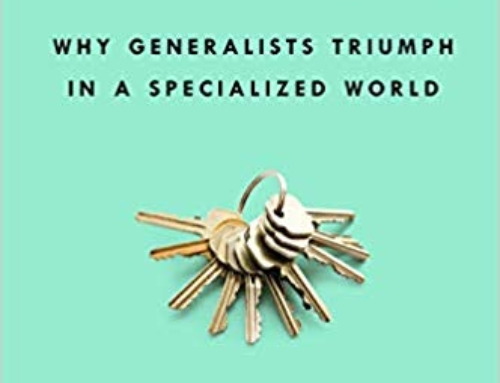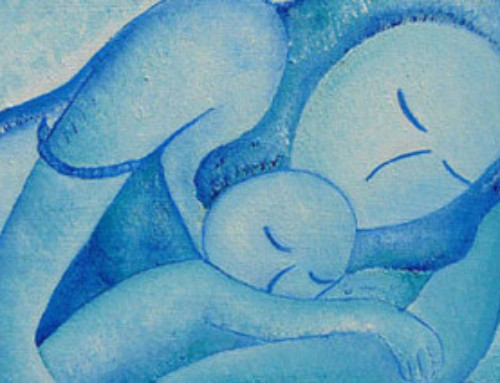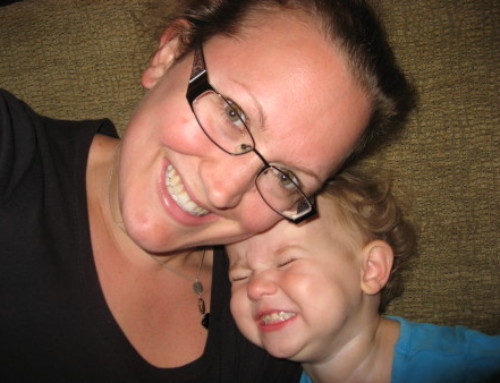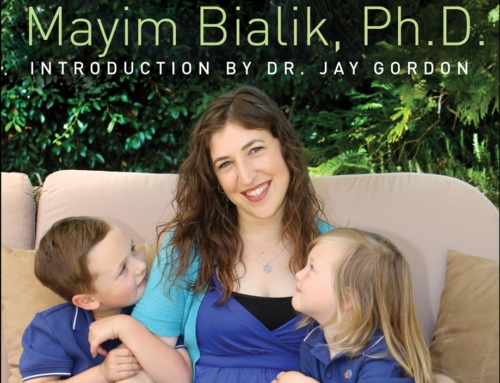Many of you read the Moral Landscapes blog done on Psychology Today by Dr. Darcia Narvaez, Professor of Psychology at the University of Notre Dame. She regularly writes posts about infant well-being and her most famous post, ‘The Dangers of Crying-It-Out‘, has been viewed over 750,000 times. I consider myself lucky to be able to write with her (along with other incredibly talented individuals who care about families) and even more lucky that I had the chance to sit down with her at the most recent meeting for the Society for Research on Child Development and talk about a few of the issues we face today when looking at infant and family health and well-being.
I hope you can enjoy watching this as much as I enjoyed speaking with her!






Thank you, thank you! What a wonderful interview. I subscribed to your blog yesterday before listening to the interview. 35 years ago my husband and I refused to let our first son cry it out – we have been going against the grain of society ever since, going as far as totally educating both our sons at home! As with most new parents we knew very little about the early care of babies, I was exhausted from a long labor followed by an emergency C-section. I didn’t want my parents to visit from England because I thought that might disrupt my son’s relationship with his father; my in-laws weren’t supportive in the ways I needed then. I desperately needed more support than I received. Both our sons were breastfed for 2 years or more, there were no LC’s for support and I didn’t go to a La Leche League meeting until my first son was 4 months old – those ladies became my lifeline of support and encouragement.
I believe our second son cried much less because of the family support at the time of his birth. I was experienced at nursing by then and had my LLL group to attend once my parents left. My mother bathed the baby, my father took our 3 year old out to the park and my mother prepared nourishing meals for us all, and that support gave me time to at least take a bath!
Our first grandchild was born to our youngest son and his wife in April of this year, (at 39 weeks, natural delivery, great OB and team), and ended up in the NICU after two days with breathing problems, then jaundice. Much as there were LCs who advised my daughter-in-law well no one told her that nursing mothers could in fact bring water into the NICU! Isn’t every new breastfeeding mother told to drink plenty? After 5 NICU days my son and daughter-in-law (she took naps in the car in the ER parking lot!) were both worse than exhausted, worried and stressed.
I became their support system and I am grateful they readily accepted my help (my daughter-in-law’s mother is not in her life). At 6 weekswhen our granddaughter wasn’t putting on weight the pediatrician (thankfully) suggested another LC consult and she suggested ‘a short frenulum’. That LC encouraged them to consult an ENT and gave us a name – the ‘short frenulum’ was first suggested in the NICU by an LC based simply on observing the baby, but the recommendation was never followed through with in the NICU.
It’s 2 weeks since the frenulum was cut and our granddaughter is finally latching on well and putting on the ounces. Thank goodness my daughter-in-law is a determined breastfeeding mom.
Crying it out isn’t on their radar – holding always is! When mom is tired in the evening, dad takes over and whispers words of reassurance in his daughter’s ear and she begins to calm – if I am around I have found the calm place and soothing hum (that we new parents rarely have!) and I soon feel baby E’s little body relax.
True and extended support to new parents is so critical. I find myself now in the position of supporting and encouraging the few (sadly) parents I meet who powerfully feel they shouldn’t let their child cry it out – even when ‘expert’ Montessori teachers tell them they are too attached to their toddler!
On a different subject, but I feel it’s related to ‘crying’, I wonder if you know about the use of swaddling as a means to ‘stop’ crying? I had never used it until I worked with infants in a Montessori daycare. Tight swaddling was the ‘rule’ it seemed, and every baby who didn’t want to nap seemed to stop crying! How else are you going to get six babies to take their morning nap, so essential to staff management for lunch breaks etc! I much preferred working with the babies who would crawl into my arms for their bottle and then calmly drop off – no swaddling needed, just a responsive carer! I couldn’t change the ethos of that facility (I wasn’t the Lead teacher, although I was the most experienced – my choice to be part-time only – long story!).
I now believe that crying it out and swaddling ‘breaks’ babies emotionally. Plus the impoverished nature of many virtually indoors-only non-play based daycare programs ‘breaks’ their brains – just as Darcia suggests.
Speech doesn’t come from ‘reading’ to babies because babies lip read! So we must talk to babies face to face for them to learn how to talk properly. I have a 35 year old and 32 year old who are my proof that talking begets fluent talkers – and writers! I also love the alternative way their brains work – so much play time when you are educated at home!
I thank you so much Tracy for conducting this interview. I will recommend it to those parents who are struggling with ‘society’ telling them to let their babies cry it out.
Helen